If Tanjung Puting was warm and cuddly, Kutai National Park was creepy-crawly. At dinner on our first night, a big spindly spider dropped down to nose level between us and hung there. Shen commented that it looked like a black widow and asked if I could see red on its belly. Just then, It slowly rotated on its thread, and there it was: a blood-red splotch underneath. Oh, dear. We were doubly grateful for our mosquito nets that night. One early evening, we were sitting on the deck when we heard a soft thud to our left. We looked over and saw that a snake had apparently fallen from the sky. He sat still for a moment and then slithered off into the woods. Our third creepy-crawly was one we intentionally searched out. After dark, our guide took us out into the jungle looking for the hole. Once we arrived, we turned off our headlamps, and the guide used his to create a complicated light show to charm the creature out. After a few minutes of strobes and flashes, out crawled a massive tarantula. He was actually beautiful, soft brown and velvety. We watched him for a minute or so then left him to his hunting. At the research camp where we were staying, we met an English guy who assured us there were no crocodiles in the river and told us how much he had enjoyed swimming every day. We remembered those words when we saw our largest creepy-crawly, and eight-foot croc sunning on the muddy banks. We asked our guide about it, and he said the nearby town averages about five crocodile attacks on people per year. And yet they continue swimming and bathing in the river! We were told the crocs can grow up to 30 feet, which I had to assume was an exaggeration or I could not have stepped foot in the boat back to town.
We also saw wild orangutans on several hikes, which was a treat
. They hang out high up in the branches, so we were glad to have our binoculars. I can see why they're called orangutans, a name that means 'person of the forest’ in Indonesian (and Malaysian). They would often be obscured by leaves, with just a hand or a foot showing, or we would just see the dark outline of a body against the green. Then they would shift, or the wind would rustle the leaves, and for just a moment we’d catch a glimpse of human-like eyes staring down from the canopy. I like thinking about early explorers who had never seen them before, and maybe didn’t know they existed. How spooky it would be, to see animal shadows moving around in the trees, and then catch a glimpse of those eyes.
They weren’t always so tough to see. One day we found a group of them feeding in trees along the riverbank, and we were able to watch for quite awhile. They weren’t too bothered by us, though the mom with the baby chided us a few times. They were eating fruits called Singkawang, which when peeled are about the size of a grape
. Considering how big the orangs are, it’s amazing that that’s an acceptable food source.
Wildlife aside, it was really wonderful to just be in the forest. Hiking around, we saw trees so huge they supported their own substantial ecosystems, and butterflies that seemed scaled up to match. Although it’s the dry season, we got one good heavy rain, and it was really cool to hear it pounding its way up the river before it reached us. We stayed at a camp that is used for orangutan research four months of the year but allows visitors during the other eight. It was a great place to stay – very rustic, but with mattresses and shelter from the rain. The outdoor shower required a bathing suit, but we loved showering among the trees. It was a nice break from the standard shower here, which is generally a nozzle hanging above the toilet. One of my favourite parts of the trip, as always, was the nighttime noises. I don’t know why – maybe it’s a relic of a childhood in the country – but I’m deeply soothed by the rhythm of all the insects, cicadas, frogs, lizards, etc
. And the rainforest has that in abundance.
So that is it for Kalimantan. We spent ten full days on the island, not including travel days on either end. Of those ten, six were spent dealing with transport – arranging it, waiting for it, or riding it. That is a crazy ratio, especially considering we hired guides and private transport for part of it. Our original plan was to spend much more time here, but transport has been difficult throughout Indonesia and even more so here. We want to finish our trip on the beach, so we find that we have neither the time nor the energy to explore Kalimantan thoroughly. To be frank, it’s also been a little depressing. I hope that there are parts of the island that are still wild and well-protected, but in our time in the south and east, what we saw was a far cry from the ‘jungles of Borneo’ image. From the plane, the southern and eastern regions were just a patchwork of agriculture and settlements. From the ground, human settlement stretched on for miles and miles, all built up from the economic activity of extractive industries. Perhaps most symbolic of the lack of environmental commitment was when our park ranger, who did not seem to know or care about the park, smoked cigarettes on our hikes and flicked the butts into the forest. I can’t make sweeping judgements from just ten days in two areas, but I really hope that the environmental situation is less dismal than it appeared.
The last island on our itinerary is Lombok, just east of Bali. It’s much more touristed, which in our current frame of mind is just fine. We’re looking forward to (relatively) easy transport, a little surfing, a little time on the beach, and maybe…if I’m really really lucky…a glass of wine!
Into the Wild
Wednesday, August 03, 2011
 Kutai National Park, East Kalimantan, Indonesia
Kutai National Park, East Kalimantan, Indonesia
Other Entries
-
4New Friends
Jun 0658 days prior Seminyak and Lovina, Indonesiaphoto_camera9videocam 0comment 4
Seminyak and Lovina, Indonesiaphoto_camera9videocam 0comment 4 -
5Good time to go
Jun 1054 days prior Seminyak, Indonesiaphoto_camera11videocam 0comment 0
Seminyak, Indonesiaphoto_camera11videocam 0comment 0 -
6Ubud
Jun 1549 days prior Ubud, Indonesiaphoto_camera41videocam 0comment 0
Ubud, Indonesiaphoto_camera41videocam 0comment 0 -
7Bali-Bye
Jun 1747 days prior Denpasar, Indonesiaphoto_camera11videocam 0comment 8
Denpasar, Indonesiaphoto_camera11videocam 0comment 8 -
8The Wild East
Jun 1945 days prior Waingapu and Pulupanjang, Indonesiaphoto_camera10videocam 0comment 2
Waingapu and Pulupanjang, Indonesiaphoto_camera10videocam 0comment 2 -
9Surf Camp
Jun 2341 days prior Kallala, Indonesiaphoto_camera17videocam 0comment 6
Kallala, Indonesiaphoto_camera17videocam 0comment 6 -
10Skipping through the village
Jun 2638 days prior Waikabubak, Indonesiaphoto_camera24videocam 0comment 0
Waikabubak, Indonesiaphoto_camera24videocam 0comment 0 -
11Interminable Ferries and Magical Lakes
Jun 3034 days prior Moni, Indonesiaphoto_camera34videocam 0comment 0
Moni, Indonesiaphoto_camera34videocam 0comment 0 -
12Housewarming, Flores-Style
Jul 0232 days prior Bajawa, Indonesiaphoto_camera48videocam 0comment 1
Bajawa, Indonesiaphoto_camera48videocam 0comment 1 -
13Komodo Part I: Land
Jul 0727 days prior Labuanbajo, Indonesiaphoto_camera26videocam 0comment 2
Labuanbajo, Indonesiaphoto_camera26videocam 0comment 2 -
14Komodo Part II: Sea
Jul 0727 days prior Labuanbajo, Indonesiaphoto_camera11videocam 0comment 0
Labuanbajo, Indonesiaphoto_camera11videocam 0comment 0 -
15Not in Kansas
Jul 1123 days prior Jakarta, Indonesiaphoto_camera9videocam 0comment 2
Jakarta, Indonesiaphoto_camera9videocam 0comment 2 -
16Surf Extravaganza - Shen's Guest Post!
Jul 1816 days prior Batu Karas, Indonesiaphoto_camera27videocam 0comment 7
Batu Karas, Indonesiaphoto_camera27videocam 0comment 7 -
17The Joys of Travel
Jul 1915 days prior Yogyakarta, Indonesiaphoto_camera1videocam 0comment 3
Yogyakarta, Indonesiaphoto_camera1videocam 0comment 3 -
18Path to Enlightenment (or at least better grammar)
Jul 2212 days prior Borobudur, Indonesiaphoto_camera39videocam 0comment 5
Borobudur, Indonesiaphoto_camera39videocam 0comment 5 -
19Visa Run
Jul 2311 days prior Singapore, Singaporephoto_camera7videocam 0comment 1
Singapore, Singaporephoto_camera7videocam 0comment 1 -
20River Cruising
Jul 277 days prior Pangkalan Bun, Indonesiaphoto_camera49videocam 0comment 3
Pangkalan Bun, Indonesiaphoto_camera49videocam 0comment 3 -
21Into the Wild
Aug 03 Kutai National Park, Indonesiaphoto_camera32videocam 0comment 5
Kutai National Park, Indonesiaphoto_camera32videocam 0comment 5 -
22Surf Safari - SHEN GUEST POST #2!!!
Aug 107 days later Kuta, Indonesiaphoto_camera34videocam 0comment 2
Kuta, Indonesiaphoto_camera34videocam 0comment 2 -
23Honeymooning At Last
Aug 1411 days later Gili Meno, Indonesiaphoto_camera14videocam 0comment 3
Gili Meno, Indonesiaphoto_camera14videocam 0comment 3 -
24Happy Postscript
Aug 1613 days later Washington DC, United Statesphoto_camera4videocam 0comment 4
Washington DC, United Statesphoto_camera4videocam 0comment 4
Comments
2025-05-22
Comment code: Ask author if the code is blank

 Kutai National Park, East Kalimantan, Indonesia
Kutai National Park, East Kalimantan, Indonesia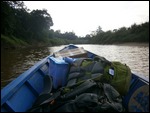
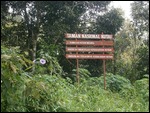
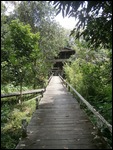



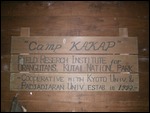
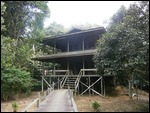
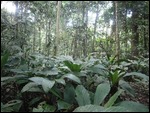
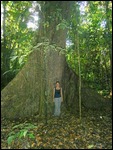
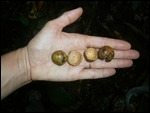
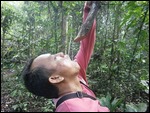
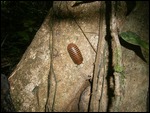
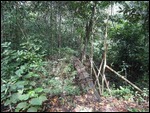
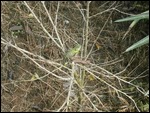
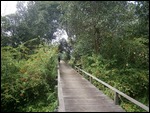
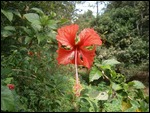
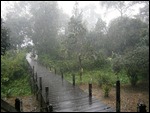
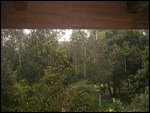
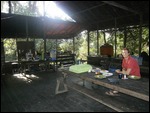
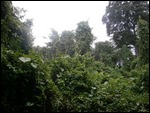
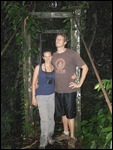
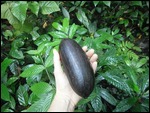
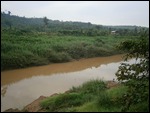
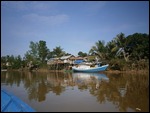
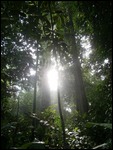
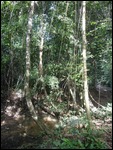
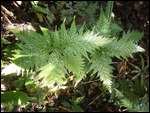
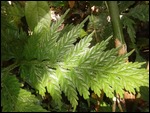
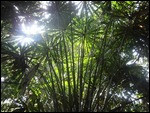
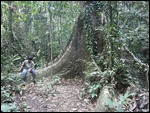
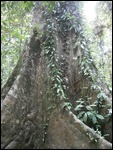
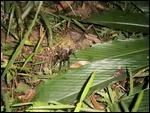

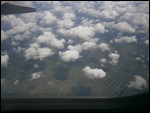
Amy Scott
2011-08-07
Some of these pictures remind me of our crazy hikes in Honduras!
jesshiggins
2011-08-08
True, it looks a lot like La Ceiba. I love that jungle lodge!